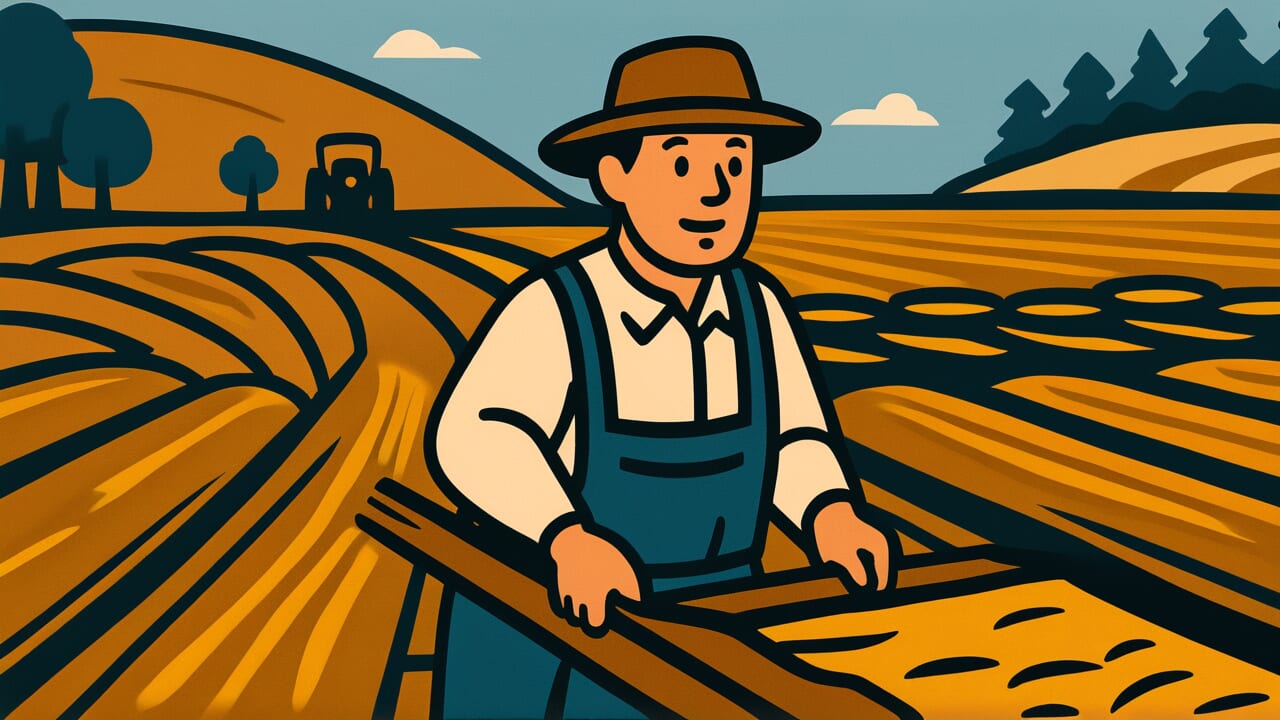How to Read “If one man does not plow, the whole world suffers his hunger”
Ippu tagayasazareba tenka sono ue wo uku
Meaning of “If one man does not plow, the whole world suffers his hunger”
This proverb means that if even one person is lazy, it negatively affects everyone. When just one person fails to fulfill their role, the entire society suffers the consequences.
In any organization, team, or society, each person’s role is never small. The idea that “it’s okay if just I slack off” actually causes trouble for everyone around you and the whole group.
This proverb shows how heavy individual responsibility is and how strongly we are connected to the whole.
Even today, this lesson applies everywhere. It matters in workplace projects, school group work, and community activities.
When one person slacks off, someone else must fill that gap. The overall results suffer too.
Origin and Etymology
This proverb likely comes from ancient Chinese classics. Similar expressions appear in the “Classic of Filial Piety,” one of the Confucian texts.
This suggests the proverb was influenced by Confucian thought.
“Ippu” means one man, or one person. “Tagayasazareba” means “if one does not plow,” referring to not doing farm work.
“Tenka” means the whole world. “Sono ue wo uku” means to receive that hunger, or to suffer from starvation.
In ancient China and Japan, agriculture was the foundation of society. Everyone plowed fields and produced food, which kept society functioning.
If even one person became lazy and abandoned farming, the harvest would decrease by that much.
As a result, the entire society could face food shortages.
This saying was valued by rulers and educators as a lesson about individual responsibility and its relationship to society.
It uses the clear example of farming to show how important each person’s role is.
It demonstrates how much one person’s laziness affects everyone.
During the Edo period, moral instruction books quoted this proverb to teach the importance of diligence.
Usage Examples
- As a team member, I must take responsibility for my work with the spirit of “If one man does not plow, the whole world suffers his hunger”
- As the saying goes, “If one man does not plow, the whole world suffers his hunger” – failing to fulfill your role causes trouble for everyone around you
Universal Wisdom
The universal truth this proverb reveals is the nature of interdependence in human society. We cannot live alone.
Everyone contributes to society in some way. At the same time, we are all supported by others’ contributions.
Why has this teaching been passed down through the ages? Because humans easily develop the attitude of “just me alone won’t matter.”
In large organizations, our own existence seems small. We think that if we slack off a little, nobody will notice and there will be no impact.
This psychology is a human weakness that hasn’t changed throughout history and across cultures.
But in reality, even the largest society is built on the accumulation of individual efforts. One grain of rice is tiny, but many grains together become food that feeds people.
One person’s laziness may seem small, but if it accumulates, it could even collapse entire societies.
This proverb also teaches about the balance between individual freedom and responsibility. We have the right to live freely.
But we also bear responsibility as members of society. Only by fulfilling that responsibility can we achieve the wellbeing of society as a whole.
Our ancestors deeply understood this interdependent relationship.
When AI Hears This
The claim that the whole world starves when one farmer stops plowing indicates an extremely special state mathematically.
In a normal system, if one component fails, the impact on the whole should be minimal.
For example, if there are a thousand farmers, one person resting would only reduce food production by 0.1 percent.
But this proverb holds true when the system is in a “critical state.” A critical state can be explained through the sandpile experiment.
You add sand grains one by one to the top of a sand mountain. At first nothing happens, but at a certain moment, just one grain triggers an avalanche.
What’s important is that the grain itself has no special power. When the entire system is in a tense state on the verge of collapse, the smallest change creates a chain reaction.
Ancient Chinese agricultural society was likely in exactly this critical state. If the balance between population and food production was stretched to the limit, even a slight production decrease could trigger a famine chain.
One person’s laziness steals food from neighbors, those neighbors become unable to work, and production drops further.
In complexity science terms, this is a “positive feedback loop.”
The essence of this proverb isn’t about individual responsibility. It’s a structural warning that as systems approach critical points, the smallest actions become fatal.
Lessons for Today
What this proverb teaches us today is that we must not underestimate the importance of our own roles.
Your work, your effort, your existence affects those around you more than you think.
In modern society, it’s hard to see our own contributions. As one cog in a large organization, you might feel like you’re losing sight of your value.
But that’s exactly why this teaching matters. The small responsibility you fulfill today might support someone’s tomorrow.
To apply this lesson, start by clearly recognizing your role. Then fulfill that role sincerely.
You don’t need to be perfect. Just don’t turn away from the responsibility given to you.
That alone means you’re contributing to society as a whole.
At the same time, this proverb teaches us gratitude. The food you eat today and the tools you use all exist because someone fulfilled their role.
Our society functions because each person fulfills their responsibilities for one another.



Comments